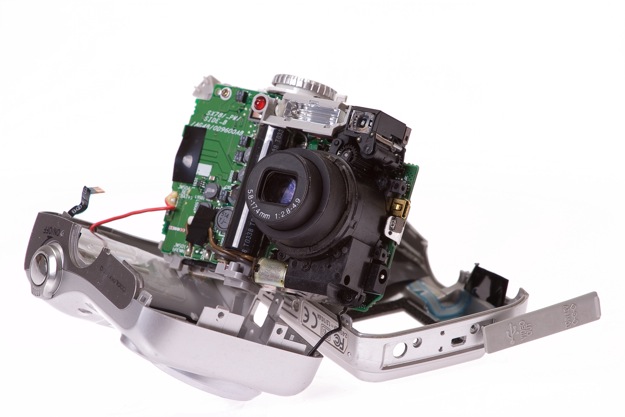
On January 29, Google was awarded patent 8,363,157 by the U.S. Patent and Trademark Office. While it probably won’t have any impact on your personal life, this patent could be very troublesome to makers of point-and-shoot cameras in the upcoming years. The patent describes a system that allows a camera phone to fire using a ring of multiple LED lights around a lens, which could enable cell phone cameras to become even more sophisticated than they already are.
You might be asking, why a patent awarded to Google should worry camera makers? In 2011, 27 percent of all photos taken were shot with camera phones, significantly higher than in 2010. According to DxO mark, today’s cell phone cameras are already more sophisticated than the point-and-shoot cameras of five years ago. That fact, combined with the rising install base of cell phones, can only mean the number of photos people take with their cell phone will continue to rise.
Cell phones are a logical replacement for point-and-shoots because they are small and users are always carrying them. Camera makers like Canon and Olympus have already seen a decline in their sales of point-and-shoot cameras. According to NPD, Black Friday sales of point-and-shoot cameras were down 36 percent from 2011. So far, the saving grace for some manufacturers has been the increasing sales of their DSLR lines. As DSLRs become cheaper and easier to use, more and more users are gobbling them up (not to mention the increasing popularity of mirrorless interchangeable lens systems).
For manufacturers without a DLSR in their lineup, there is cause for concern. Outside of niche segments like outdoors and waterproof, there may be limited appeal. Point-and-shoots have small sensors that produce marginal photos. Why spend an extra $100 on a camera when your cell phone can give you the same output? Manufacturers have tried adding features like touchscreens and innumerable photo modes (does anyone even use them?) to point-and-shoots, but it hasn’t stemmed the blood flow. The only features that keep smartphones at bay are the ones that count, such as better sensors and long optical zooms.
Why would a user opt to purchase a point-and-shoot when the camera they always have on them can take decent enough snapshots? In the world of street photography, many street shooters have already started using the iPhone 5 as their full-time camera.
Of course, this leads us to again ask the question, is there still a market for point and shoot cameras? Will this Google patent help dig the grave deeper if it leads to more sophisticated camera phones? Or can traditional camera makers fight back with enticing models that give us a reason to carry two devices?
Editors' Recommendations
- Best camera deals: Save on DSLR, action cameras, point-and-shoot
- How to use the Google Pixel 6’s clever Action Pan and Long Exposure camera modes
- In Google’s new world, your phone camera is for way more than taking photos
- Amazon discounts this point and shoot Panasonic Lumix camera by $100
- Camera shootout: Can Huawei’s P40 Pro Plus beat Apple, Samsung, and Google?
